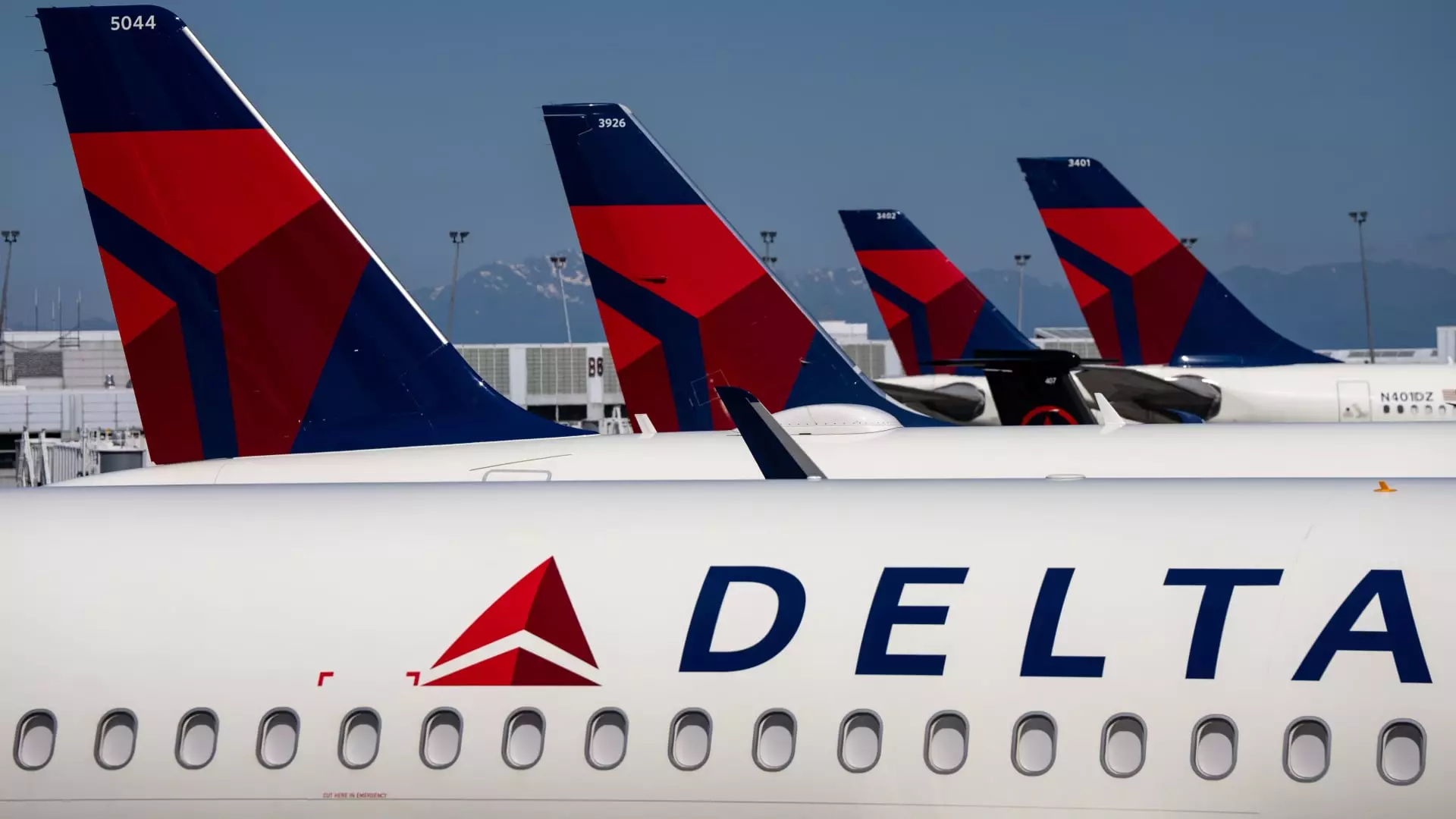Delta Air Lines has recently laid bare an unsettling narrative about the current state of the airline industry, reflecting broader economic uncertainties tied to shifting trade policies and declining consumer confidence. The company’s decision not to expand its flying capacity in the latter half of the year is a clear wake-up call for stakeholders who had held onto the hope of continual growth. CEO Ed Bastian’s comments emphasize a needed shift in approach—his critique encapsulates both the anxiety surrounding consumer behavior and the impact of governmental policies on business operations. It’s a stark reminder that momentum in the airline industry, often thought of as a bellwether for economic health, can reverse course with alarming speed.
Numbers Don’t Lie: A Diminished Outlook
Delta’s recent revenue forecasts, which predict a modest decline or a slight growth of up to 2% year-over-year, starkly contrasts with Wall Street’s expectations of a 1.9% increase. Such discrepancies raise eyebrows and should ignite discussions about whether the airline’s leadership is receiving the full picture or whether external economic pressures are leading to conservative assessments. Furthermore, the anticipated adjusted earnings per share of $1.70 to $2.30 demonstrates a worrying gap compared to the $2.23 analysts were betting on—a difference that could signal much more than a minor setback. It’s hard to escape the notion that the industry is grappling with deeper ideological and economic challenges that have been brewing beneath the surface.
The Corporate Bubble is Bursting
The reality is that Delta, once the poster child for industry profitability, is now facing headwinds that no amount of optimism can deflect. The once-strong demand from corporations for travel is experiencing significant pullback, compelling a reassessment of business trips at a time when many are recalibrating their spending strategies. This reluctance from corporates is concerning, as it exemplifies a shift in the business environment that may not simply be a transient state influenced by Trump-era policies but rather a reflection of shifting values surrounding corporate expenditure. Bastian’s insights into corporate behavior underscore a broader trend—companies are instinctually wary of allocating funds, focusing instead on preserving capital amidst uncertainty.
The Aftershocks of Economic Policy
The fears surrounding declining consumer confidence are not just vague notions thrown around by analysts; they are deeply tied to the economic policies and trade negotiations upheld by the current administration. The straightforward correlation Bastian draws between policy shifts and slackening demand makes one wonder if a recalibration in governance is required. At a time when robust consumer spending typically supports travel and leisure industries, the current climate feels alarmingly stifling. One cannot ignore the sentiment that perhaps the so-called ‘America First’ approach, while noble in its intentions, has inadvertently thrown a wrench into the machinery of consumer confidence.
Delta as a Harbinger of Change
Delta’s current situation serves as an early warning against complacency. The company’s acknowledgment that it will remain flat in capacity growth year-on-year embodies a mindset focused on pragmatism. This protective stance could serve as a template for other airlines and industries bracing for similar economic turbulence. With ongoing global trade concerns, Delta’s commitment to protecting margins and cash flow speaks volumes about the shifting landscape where companies must pivot quickly to avoid large-scale losses.
Wider Implications for the Airline Industry
As Delta stands alone in its financial admissions, one must ponder what the implications are for the rest of the airline sector. Will United, American, and Southwest Airlines follow suit with similar admissions, or does Delta’s situation highlight a unique vulnerability that isn’t shared by all players? In the coming weeks, when these airlines release their reports, we may see a more cohesive picture illustrating the serious ramifications of a slowing economy.
Economic resilience is gravely tested when external pressures disrupt traditional patterns of behavior, as seen with Delta. Collectively, the airline industry must navigate these conservational changes thoughtfully to avoid plummeting further into an abyss driven by negative consumer sentiment.

